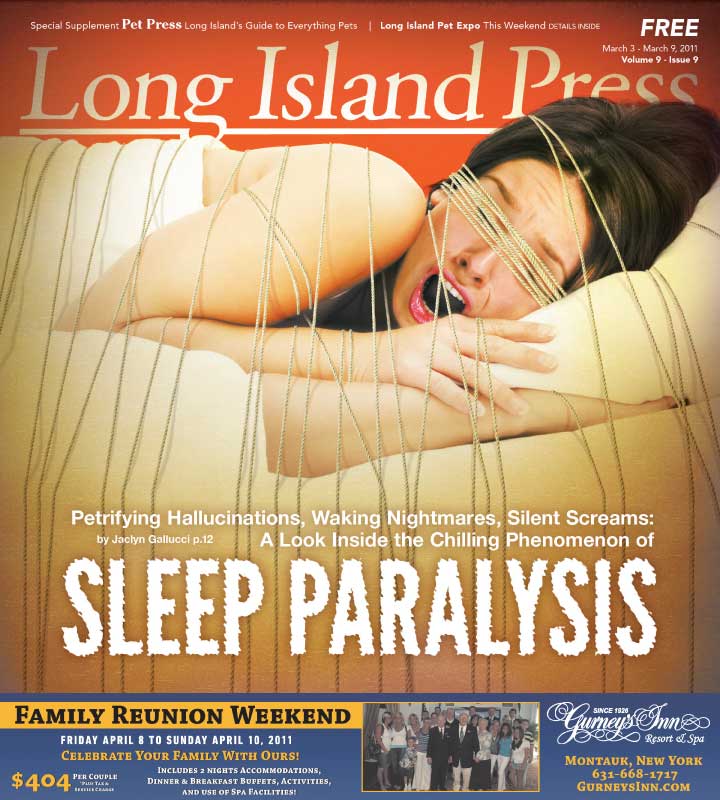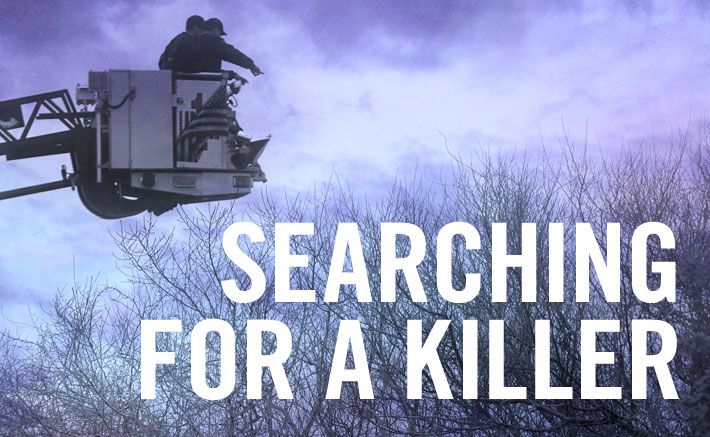

The walls of Leah’s Kings Park bedroom are dark purple, but on some nights, they change color.
It’s a slow and strange transformation when it happens. Dark shadows from the oak tree outside her second-floor window merge with the musty orange flashes of streetlights and creep through the blinds. The walls pulsate with a deafening hum, then shatter into shimmering pixels of multi-colored light.
Everything is loud. The world is vibrating. Unseen things speed by and brush against her. The wiry outlines of flowers on the long curtains melt into faces. The stems stretch into sharp, twisted fingernails clawing at shredded, grinning petals and practically fly off the walls when heavy winds rush through the locked windows.
Leah walks around the room but never stands up. She is thrown against the bed. Something holds her down. She manages a barely audible whimper, that she’s not quite sure could be heard outside of her own head. Then the voices start—breathy, hot whispers in her right ear. She’s not sure what they say, but they are nothing short of terrifying. She can’t move, but she can open her eyes and look around.
She tells herself she won’t sleep tomorrow night, at least not in this room. She says she’ll remember everything come morning, but never does. It’s not until Leah is sitting at her desk, driving to the store, or going through her normal routine that the flashbacks start to happen. She remembers a shadow, a whisper, a touch.
She panics.
She is suddenly a child afraid of the dark. At worst, she thinks she’s possessed by demons. At best, she’s losing her mind.
It took years before Leah, 32, realized it was neither of these things, and she was finally able to put a name to what was happening to her roughly once every few months: sleep paralysis.
Simply put, sleep paralysis (SP)—considered by some to be an out-of-body experience, others a nightmare or merely a symptom of anxiety—is when a person becomes suddenly aware during deep sleep, a time when the entire body, except for the fingertips, toes and eyes, is normally semi-paralyzed. This awareness causes dark hallucinations and an inability to speak.
Most people will experience some degree of sleep paralysis at least once in their lifetime, several studies have shown, but the majority of those sleepers won’t be affected often or severe enough to consider it a problem, and many times it is just written off as a bad dream. But for those like Leah, it’s a regular occurrence. And having a name for this strange condition has left her with more questions than answers.






